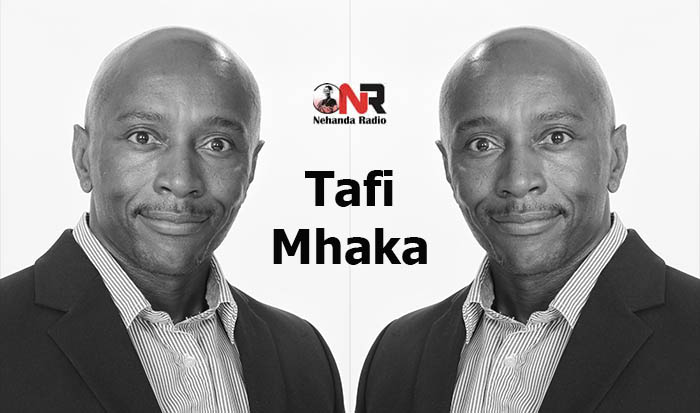Tafi Mhaka: Mthuli Ncube is not the problem…. Zanu-PF is
By Tafi Mhaka
Back in 2000, as a teacher at Sagambe Secondary School in Honde Valley, I discovered that rural teachers struggled to survive on a month’s salary. So payday meant so much to everyone.

Despite residing at their workplaces and not paying utility bills, teachers clearly always had limited disposable income and just didn’t exhibit substantial material progress.
Sometimes, beyond a bed and the clothes on their back, most had nothing to show for their education and hard work. They simply could not afford to buy cars and houses or build up considerable savings in the bank.
The meagre compensation and benefits on offer just didn’t allow for that and barely matched the professional demands of the job.
Every day I watched my colleagues work hard to mentor a generation of capable and disciplined pupils in very challenging circumstances.
And I established mental frames of the richly rewarded professionals they may have become in better situations: engineers, geologists, lawyers, managers and statisticians.
For it was not for a lack of trying or intellect that they had graduated from college as teachers and found themselves struggling to do well financially: in many instances their parents or guardians just lacked the financial means to pay for A Level studies.
So after attending a teacher’s college, they had to make the best of a promising but truly difficult situation.
Sadly, today, after 20 years, payday still means a lot to teachers.
A very huge deal, in fact.
But the situation is far worse off and much less hopeful than I had ever imagined back then.
That is because in 2020, teachers earn far less money comparatively, but the cost of living is extremely high.
Last week the Amalgamated Rural Teachers’ Union of Zimbabwe (Artuz) asked President Emmerson Mnangagwa to dismiss finance minister Mthuli Ncube within seven days or face crippling protests by members of the association.
The organisation, which is set to embark on demonstrations between March 23 and 27, said, “Our salaries were slashed from over US$500 to the now US$55”.
This is terrible.
Never mind investing in stock market options or a retirement policy, how can anyone fend for a family of four or five on a salary of $US55 a month and build up substantial savings at the same time?
What’s more, assuming a teacher has two or three children of school or university-going age, how is he or she supposed to afford tuition or boarding fees on that shockingly low salary?
It is simply an unsustainable, depressing and demeaning situation.
But things weren’t always so bad for teachers.
In the 1980s, a rural teacher could well afford to enjoy a decent and dignified lifestyle.
So could Zanu-PF leaders and top civil servants.
Tellingly, however, while working conditions and remuneration for teachers have regressed massively, the governing elites have grown incredibly richer and they drive bigger and better cars and live in grand multimillion-dollar mansions.
This is embarrassingly shameful and teachers must demand better pay and improved working conditions.
So Artuz, it must be stressed, has the right idea: somebody high up in government must be held accountable for the poverty imposed on teachers.
However, Ncube is not the problem. Zanu-PF is.
Let us get that right from the get-go: Zanu-PF is to blame for Zimbabwe’s widespread social, economic and political problems.
He may be an outwardly brash, arrogant and despicable man, who has indeed failed to resuscitate Zimbabwe’s economy, but Ncube just doesn’t have the mandate or clout needed to enact the reforms required to get the US and EU to lift targeted sanctions on Zimbabwe.
That largely unfulfilled, critical responsibility lies with Zanu-PF’s leadership and politburo.
So while it is tempting to deliberate on Ncube’s failings and skirt around Zanu-PF’s culpability in this disastrous economic crisis, it won’t change a thing.
And while it is tempting to believe that a new finance minister might turn things around, they actually wont.
As long as Zanu-PF doesn’t implement extensive media, security and political reforms, teachers are doomed to earn very little money for the next 20 years as well.
Should it decide to publicly express its disapproval of the state of the economy, Artuz must instead call on Zanu-PF to either implement comprehensive reforms or hold a fresh, free and fair election.
That’s all.
Still, Artuz must be commended for its willingness to take the bull by its horns and organise demonstrations.
With any luck, one day soon, payday will, once again, bring joy to teachers’ lives.
Until then, Artuz must fight on.
Tafi Mhaka is a Johannesburg-based writer and commentator. His debut novel,
Mutserendende: The African in Us, will be published in 2020.






